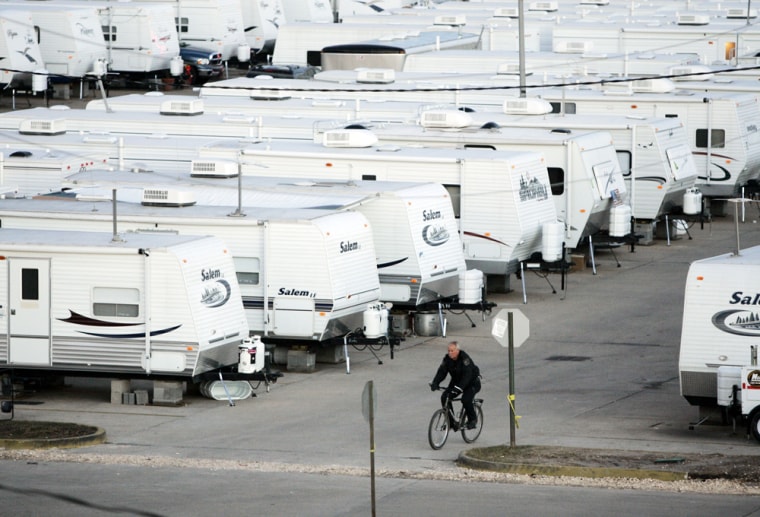A federal jury on Thursday rejected a New Orleans family's claims that the government-issued trailer they lived in after Hurricane Katrina was defective and exposed them to dangerous fumes.
A jury of five men and three women decided that a trailer made by Gulf Stream Coach Inc. and occupied by Alana Alexander and her 12-year-old son, Christopher Cooper, was not "unreasonably dangerous" in its construction.
The jury also concluded that Fluor Enterprises Inc., which had a contract to install FEMA trailers, wasn't negligent in doing so. The federal government wasn't a defendant in this first of several "bellwether" trials.
"Bellwether trials" are frequently used in cases involving similar claims in product litigation to determine if they result in similar outcomes, thereby increasing pressure for a group settlement.
In the FEMA travel trailer litigation, U.S. District Court Judge Kurt Engelhardt in February scheduled four cases for trial, including the one decided on Thursday, in an effort to pave the way for settlement of at least 30 pending lawsuits against manufacturers.
Cooper's case
After eight days of testimony, the jury heard closing arguments in the case against Gulf Stream Coach and Fluor Enterprises.
Alexander and Christopher lived in a FEMA trailer for 19 months after Hurricane Katrina damaged their home in August 2005.
Alexander's lawyers claimed elevated levels of formaldehyde in the family's trailer aggravated Cooper's asthma and increased his risk of getting cancer. Formaldehyde, a chemical commonly found in construction materials, can cause breathing problems and has been classified as a carcinogen.
Plaintiffs' attorneys accused Gulf Stream and other trailer makers of using shoddy materials and methods in a rush to meet the Federal Emergency Management Agency's unprecedented demand for temporary shelters after hurricanes Katrina and Rita.
Gulf Stream denied its trailer jeopardized the health of Alexander and her family. Andrew Weinstock, a lawyer for the Nappanee, Ind.-based company, said FEMA had purchased thousands of trailers from Gulf Stream since 1992 without receiving any formaldehyde complaints until 2006.
The Associated Press and msnbc.com contributed to this report.
